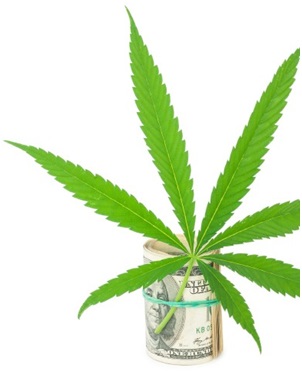Will Cannabis Banking Finally Be SAFE?

Imagine you have a profitable business. You want to expand your existing business, but the local bank won’t even have a meeting with you. In fact, you’ve had multiple bank accounts closed without warning. Three years into your profitable business and you’re on your third bank paying 20% more than the hardware store down the block.
With no option to get a bank loan, you have to take on private debt at a much higher
interest rate or give away equity to outside investors.
Credit card companies are also a no go. You’re forced to take cash only from your customers, and multiple times per week, you have an expensive armored car take the cash to the bank. In the meantime, all that cash has been sitting there tempting criminals.
Your only crime – you run a cannabis business
Why Is Cannabis Banking a Problem?
At the federal level, cannabis remains illegal under the Controlled Substances Act. Today, 37 states have legalized the sale of cannabis for medical and/or adult-use. This discrepancy between state and federal law leaves many cannabis-related businesses (CRBs) in the lurch with much higher costs to operate, higher taxes, fewer tax breaks, limited access to financial services and loans, and cash-only payment processing, which adds to security concerns and costs.
Because U.S. financial institutions are regulated by the federal government, CRBs are treated differently than non-cannabis businesses when it comes to banking and financial services. The reason why stems from federal regulations related to banking.
Federal anti-money laundering (AML) laws are the primary barrier to banks serving the cannabis industry. Banking regulations promulgated under the Bank Secrecy Act (BSA) establish multiple recordkeeping and reporting requirements for banks.
Under the BSA, financial institutions are required to file a Suspicious Activity Report (SAR) when they know or suspect a transaction involves funds from a federally illegal activity. This would include any transaction involving funds from manufacturing, distributing, and dispensing cannabis because cannabis is federally illegal under the aforementioned Controlled Substances Act.
Whether cannabis is legal and regulated at the state level doesn’t matter. Financial institutions are bound by the BSA or they risk losing their national charters – the legal document that authorizes a bank to conduct business.
Over the years, federal regulators have issued guidance for how to deal with SAR reporting when it comes to cannabis businesses operating legitimately under state law. Hundreds of banks and credit unions (mostly state-chartered) do now offer limited services for cannabis businesses but considerable hurdles and expenses remain.
There is a solution – the SAFE Banking Act
Editors’ Note: This is an excerpt from our Monthly Playbook. If you would like to read the full monthly playbook and join the thousands of others you can sign up below.


